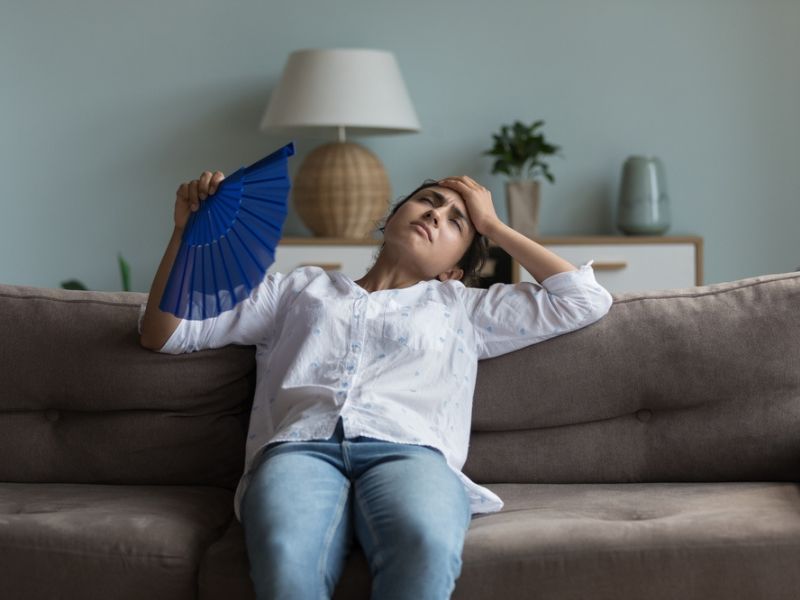Intensity workouts result in sweating, which is entirely normal. Sweating is normal after spending time outdoors on a hot, humid day. There are also times when you break out into a sweat when you are not over-exerting.
Sweating regulates body temperature and removes toxins while regulating temperature. Cold sweats can occur when you’re nauseous or anxious and indicate a more severe illness.
Frank Contacessa, MD, an internal medicine physician at MDVIP in Palm Beach Gardens, Florida, says that cold sweats differ from heat or exertion sweating. “Its causes can range from completely benign to absolutely deadly.”

Image Credit: Shutterstock/fizkes
Here’s what you need to know about cold sweats, what causes them, and when to be worried.
What Is a Cold Sweat?
Sweating is essential for our bodies. It regulates body temperature. It cools the body by evaporating water, salt, minerals, and toxins from sweat glands. Sweating prevents overheating, which could lead to death.
However, cold sweats can occur when you are not feeling hot. According to Sarita Salzberg, MD, a physician with the virtual health platform PlushCare, strenuous efforts result from diaphoresis or sweating without heat or physical activity.
How Do Cold Sweats Feel?
You’ve likely experienced cold sweats when you’re feeling stressed or nauseous. Dr. Salzberg said, “Cold sweat symptoms usually include fatigue, chills, and swollen lymph nodes.” Sweating usually occurs on the feet, palms, and armpit soles.
If you have these symptoms and cold sweats, call your doctor:
- High fever
- Coldness and shivering
- Confusion or disorientation
- Rapid breathing
- Abnormally high pulse
- Difficulty breathing
- Loss of consciousness

Image Credit: Shutterstock/antoniodiaz
Cold Sweats: What Causes Them?
The cause of cold sweats can vary – sometimes it’s not a problem, and sometimes it’s serious. You should pay attention to cold sweats if you’re generally not sweaty.
The most common causes of cold sweats
- Hyperhidrosis
- Stress and Anxiety
- Nausea
- Hormonal Changes
- Infections
- Low Blood Sugar
- Heart Attack
Is It Possible To Treat Cold Sweats?
Dr. Contacessa says there is no specific treatment for cold sweats. Cold sweats are generally treated by examining you, doing blood work, and possibly a few other tests. He said, “Be smart and listen to your body. Get help if sweats occur frequently or with other symptoms like chest pain, shortness of breath, or dizziness.”